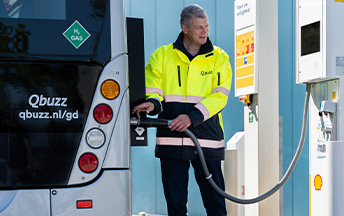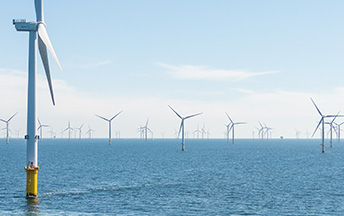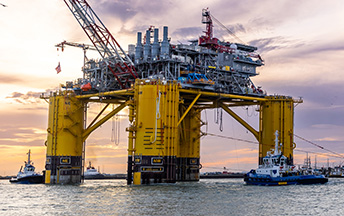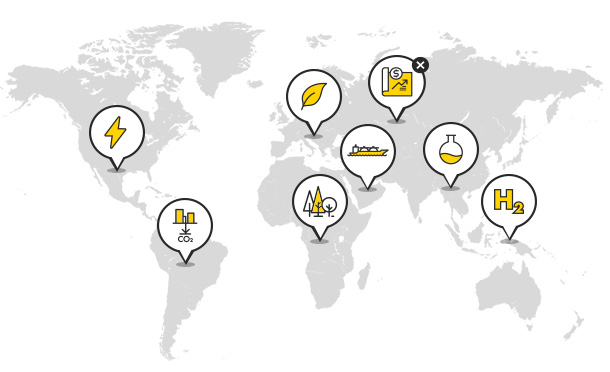Chair’s message

Chair
Our second Energy Transition Progress Report comes as the Russian war in Ukraine continues to have a devastating effect on the lives of many. The conflict has also highlighted the need for a global supply of secure and affordable energy. Amid this period of heightened uncertainty, we have worked hard to keep energy flowing to households and businesses around the world.
In 2022, I witnessed first-hand how our staff diverted energy supplies to where they were most needed. In total, we delivered 194 cargoes of liquefied natural gas to Europe – almost five times our usual average. This work helped to avert the threat of blackouts and to build up energy supplies ahead of next winter.
Against this backdrop, we made good progress in putting our energy transition strategy into action. As we delivered the oil and gas the world needs today, we reduced carbon emissions from our operations by 30% by the end of 2022, compared with 2016 on a net basis. This is more than halfway towards our target of a 50% reduction by 2030. Global energy-related carbon emissions increased by around 4% over the same period. [A]
We continued to work towards becoming a net-zero emissions energy business by 2050 by making significant investments in solar and wind power, biofuels and hydrogen. For example, we made our biggest acquisition in the energy transition yet with the purchase of Denmark’s Nature Energy for around $2 billion. This acquisition makes us Europe’s largest producer of renewable natural gas, which is made from agricultural, industrial and household waste.
Renewable natural gas can be used by customers in sectors such as commercial road transport and shipping. This is part of the work we are undertaking, sector by sector, to identify the low- and zero-carbon products that our customers need to reduce their emissions.
We continued to build infrastructure to help our customers switch to low- and zero-carbon energy. In 2022, for example, we increased the number of electric vehicle chargers we owned or operated by 62% to around 139,000, compared with the previous year.
The development of new technologies is vital to decarbonising our own operations, as well as reducing the emissions for our customers. In 2022, we launched the Energy Transition Campus Amsterdam in the Netherlands, which creates an opportunity for Shell and other companies to research new technologies for the energy transition.
Engaging with shareholders
The continued support of our shareholders is critical to Shell’s success as a company. In 2021, shareholders supported our energy transition strategy with 89% of the votes. In contrast, a resolution by shareholder group Follow This calling for a different energy transition strategy received 30% of the votes. Shareholders will get the opportunity to vote again on our strategy in 2024.
In 2022, 80% of our shareholders voted in support of the progress we had made in 2021 in implementing our energy transition strategy. Along with other Board members, I met many of our largest investors following that vote, including during investor engagements in September. I am grateful for their time and feedback, and look forward to our next engagements in April 2023.
The publication of annual progress reports, along with the advisory votes, have resulted in a more informed dialogue with our institutional investors. We heard, for example, that some large investors did not follow the Board’s recommendation to vote in support of Shell’s progress in 2022, because they mainly focused on Shell’s energy transition strategy overall, and not on our progress. Some shareholders also indicated that societal pressure, potential media coverage, and expectations from investors in their funds were reasons for not following the Board’s recommendation.
Other investors told us they would like Shell to introduce medium-term targets to reduce absolute Scope 3 emissions produced by customers when they use our products. The Board has considered setting a Scope 3 absolute emissions target but has found it would be against the financial interests of our shareholders and would not help to mitigate global warming.
This year, we are again asking shareholders to vote at our Annual General Meeting on the progress we have made in 2022 as we implement our energy transition strategy. As in previous years, this vote on our progress measured against our targets and plans is purely advisory, and not binding for our shareholders. The legal responsibility for approving or objecting to Shell’s strategy lies with the Board and Executive Committee.
We believe the progress we have made in line with our energy transition strategy has been to the benefit of our customers, our shareholders and wider society. The Board recommends that you vote in favour of Resolution 25 in support of the energy transition progress that Shell made in 2022, as described in this report and in our Annual Report and Accounts 2022.
[A] According to our analysis and data from the International Energy Agency.










